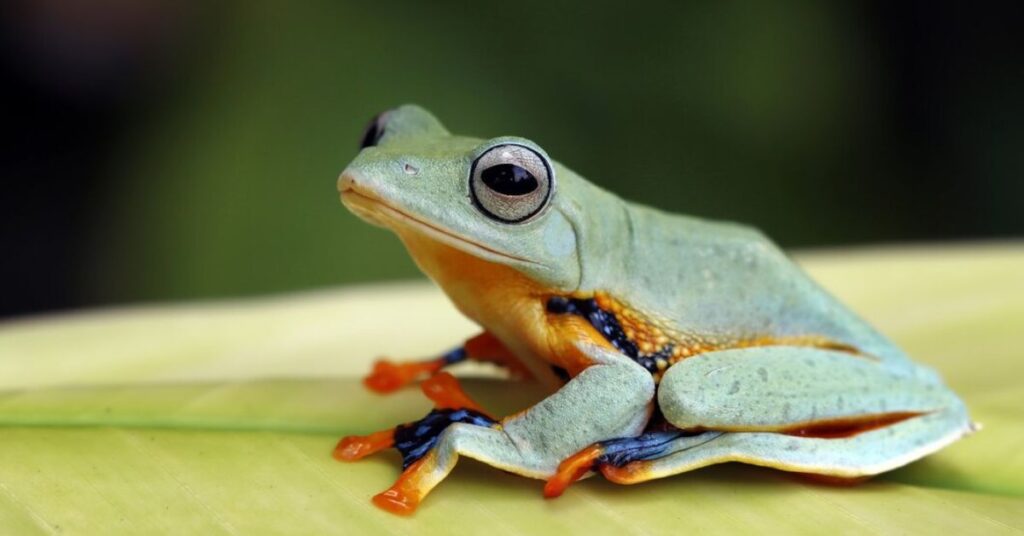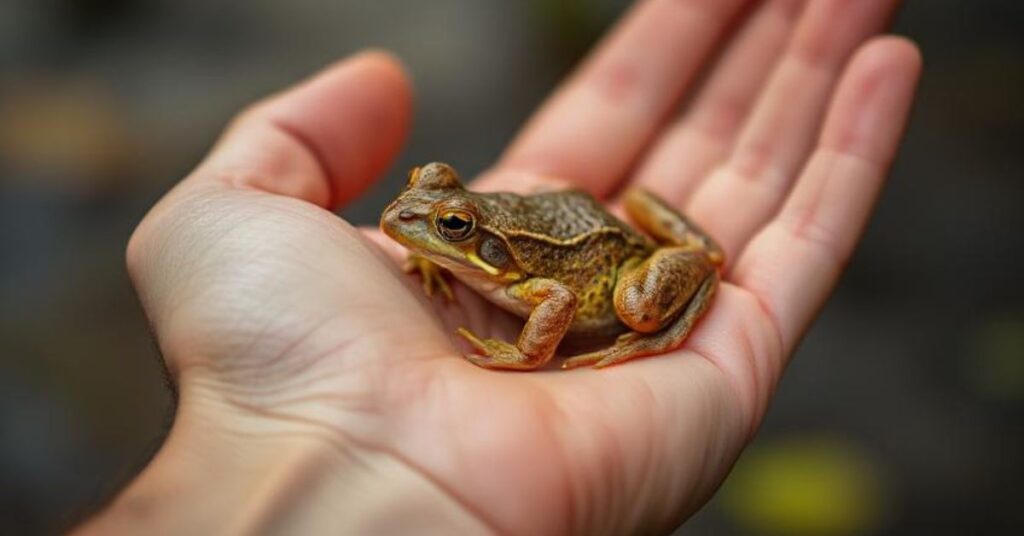In this world, we are blessed with a diverse array of ingredients and flavors, all thanks to the blessings of Allah, giving us many choices to enjoy. Among these, one intriguing question has arisen within the Muslim community: What is the status of frog meat when we consider it under the framework of Islamic dietary laws?
Is its consumption in alignment with the principles and decrees of Islamic teachings? This question often comes up in discussions, and it’s important to examine how frog meat fits into the broader dietary laws that guide humanity in their choices.
Is Eating Frog Meat HALAL: Quick summary
The well-known scholar Ibn Qudaamah clearly states that eating frog meat is not allowed in Islam. His view is based on a hadith that says it is forbidden to kill frogs. Since eating a frog requires killing it, and killing frogs is considered haram (forbidden), eating frog meat is also most likely haram. This reasoning is rooted in the Islamic teachings that discourage causing harm to certain creatures, and the act of killing a frog falls under this prohibition.
You might also like: Is Venison Meat HALAL?
What Are Frogs?

Frogs are cold-blooded vertebrate animals belonging to the order Anura. These creatures are tailless and have backbones, which makes them different from many other animals. Frogs can live both in water and on land, but they spend a lot of time in water, often found in swamps and ponds.
Their diet is quite carnivorous, consisting of insects, spiders, worms, slugs, and even small fish. Frogs play a significant role in Islamic teachings, and their position in nature makes them a subject of interest when considering whether eating their meat is HALAL.
Different Ways to Eat Frog
There are many ways to prepare frog meat, and it’s enjoyed in various cultures around the world. In Vietnam, frog meat is often part of traditional dishes, and it’s known for its unique texture and taste. In French cuisine, frog legs are a beloved delicacy, often grilled, baked, or deep-fried, showcasing the versatility of this amphibian in the kitchen.
The United States and the United Kingdom also use green frog legs in culinary dishes, adding a distinct twist to their offerings. Some prefer their frog legs sauteed or baked for a lighter dish, while others enjoy them deep-fried for a crispier treat.
While these preparations are popular across various cultures, there are discussions about the significance of frog meat in terms of halal consumption.
Scholars and members of the Muslim community often debate whether it’s permissible to consume frog meat, given that other parts of the frog, such as its excrement, might end up in foods or products. These concerns highlight the importance of halal certification and the need for thorough processes to ensure that the frog and its by-products are handled appropriately.
The Prophet Muhammad (pbuh) on Frogs
The Prophet Muhammad (peace be upon him) addressed the topic of frogs in several Hadiths. One such Hadith, narrated by Abd al-Rahman ibn Uthman, is found in Abu Dawood (Hadith 3871) and clearly states the prohibition of killing frogs. The Messenger of Allah forbade a physician from using frogs in medicine, highlighting the prohibition in Islamic teachings.
This Hadith is considered Hasan and has been confirmed by various scholars, including Imam al-Nawawi. Sahih’s narrations, like those from Imam al-Nasai, also align with this view, supporting the prohibition of harming frogs.
When it comes to consuming frog meat, scholars differ. The Hanafi school of thought holds that frogs might be permissible, particularly because they are often seen as marine animals, which are considered halal.
However, other scholars like the Maliki and Ash-Shaafi schools are of the opinion that frogs should be avoided, citing the Hadiths and the overall prohibition of killing them. This remains a topic of debate within the Muslim community regarding whether eating frog meat is haram or permissible.
You might also like: Is Morinaga’s Hi-Chew Candy Halal in Islam?
What Determines Halal vs Haram?

In Islam, halal refers to what is permissible, and haram to what is forbidden. The guidelines for what qualifies as halal or haram are rooted in the Quran and the teachings of the Prophet Muhammad (pbuh), which convey clear instructions on dietary practices. Essentially, most foods are considered halal unless there is irrefutable evidence in the Quran or Hadith that makes them haram, such as pork.
The act of eating is not just a physical need, but also a spiritual one, where Muslims invoke the name of Allah before consuming food as a symbolic gesture of gratitude and trust in Allah’s blessings. This practice reinforces the purity of the food and acknowledges the divine sustenance given by Allah.
So, Is Eating Frogs Halal or Haram?
The question of whether eating frog meat is halal or haram can be complex, as it involves understanding both cultural and Islamic law. Some scholars, like Ibn Qudaamah, have stated that frog meat is haram, as it involves the killing of the frog, which is prohibited in Islam based on certain hadiths.
On the other hand, some argue that frogs are similar to sea animals, which are often considered permissible in Islamic dietary laws. However, the cultural significance of eating frog meat in certain regions, like French or Chinese cuisine, does not change the fact that haram ingredients such as animal fats or animal derivatives may still be involved in the process of preparation.
Therefore, the halal status can be questioned depending on how the frog meat is prepared and whether certification ensures it meets the required Islamic standards.
Fahad Ali is a youth mentor and social activist committed to empowering the next generation of Muslims. By addressing contemporary issues through an Islamic perspective, He guides young minds in navigating faith, identity, and personal growth in today’s world.